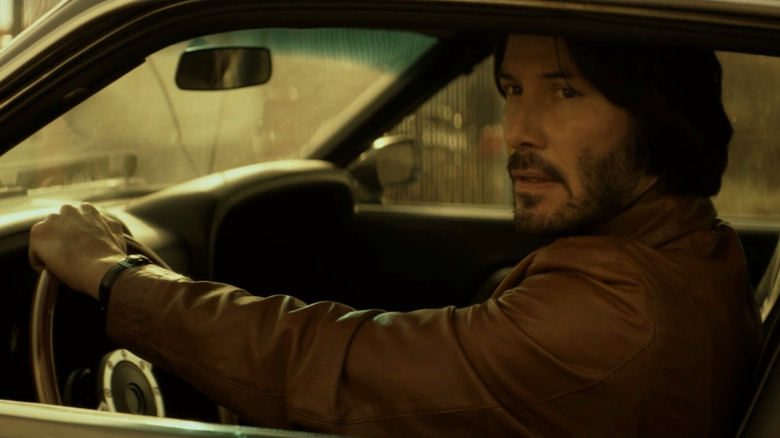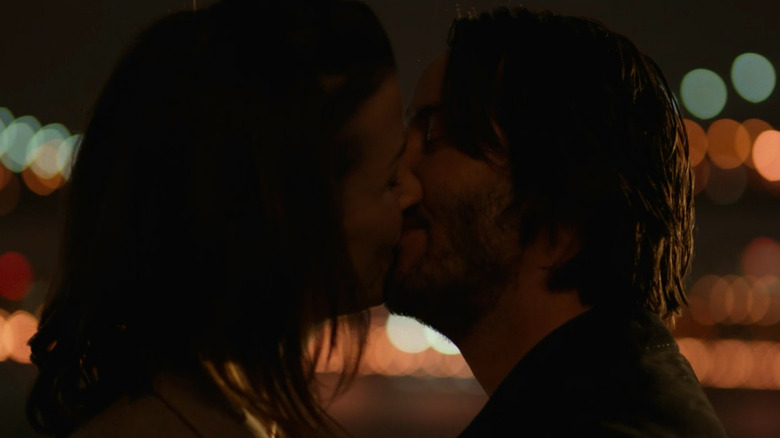The Key To Writing A John Wick Film Has Little To Do With All The Action
I was not as hot on "Chapter 4" as other folks here were, but I think it's pretty safe to call the "John Wick" series one of the finest franchises of the 21st century, especially in the action genre. In a Hollywood blockbuster landscape filled to the brim with action movies that are choppily edited, poorly staged, and devoid of imagination, the "John Wick" films provide a level of craft and beauty so rarely given to the action genre, despite it being one of the genres that needs those the most to be successful.
While we all love things like the knife fight in "John Wick: Chapter 3 — Parabellum," the spectacle of the set pieces can only get you so far. You can have the most elaborately choreographed sequence where the camera is in the right spot for every single shot that builds like a great symphony, but you do not understand why the sequence is happening or why it's important to Keanu Reeves' titular character, the sequence is ultimately a complete dud. When we think of these movies, the set pieces are unquestionably the first things we think of, but they don't exist in a vacuum. Their impact comes from our connection to John and his own emotions, all of which stem from one core place.
And no, it actually isn't his dog.
John Wick: ultimate wife guy
Going back to the first "John Wick" film, you'd often hear it described as the movie where Keanu Reeves gets revenge on the guys who killed his dog. While that is literally true, it isn't exactly emotionally true. The dog that was killed wasn't just a dog. It represented the last connection to his late wife Helen (Bridget Moynahan). Taking a dog's life is bad enough, but taking away the last link to his loving wife taken from the world too soon? That could certainly send a former assassin on a revenge mission.
This underlying core to John Wick remained ever present throughout the four films, even when the domino effects of his revenge ballooned to global chaos. Even with the films changed hands on the screenwriting level, making sure that was dictating every movement was paramount. Speaking with Digital Trends, screenwriter Shay Hatten expounded on notion:
"Well, I think the key to it, and this is really the key to working on these movies at all, is just remembering the emotional core of John's journey, which is he's a guy who really only cares about one thing, which is the memory of his wife. Everything else he cares about — whether it's his dog, his car, his freedom — are all extensions of his love for his wife."
I think this got away from them a bit in "Chapter 4," though not entirely. That film is so massive that a lot can get lost in the sauce. They bring it back around in a big way at the end, making those final moments hit. But that wouldn't have been possible without the previous three films working overtime to make sure you know that John Wick loved his wife more than anything.

